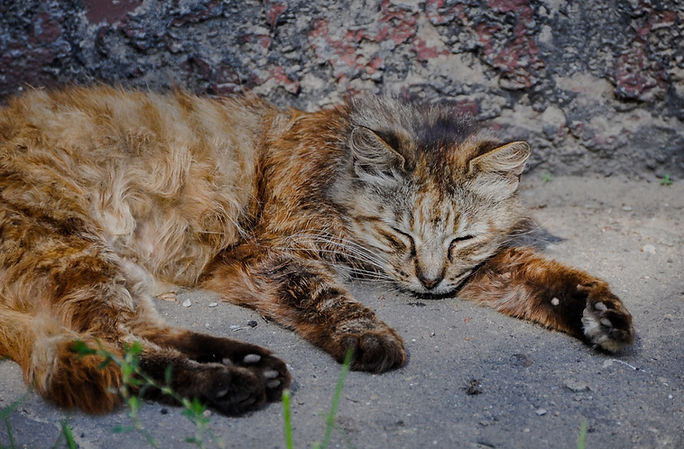
Home > Resources > Senior Pet Care > Kidney Problems
Living Well With Kidney Problems
Kidney problems are very common in cats as they age, in fact so common as to almost think that it is just a normal part of ageing. Dogs also develop kidney problems, but far less often. The average age of our pets had extended significantly over the past two decades. Once upon a time a cat older than 13 years would turn heads.
Now, we have almost gotten to the point where 13 years seems a little disappointing.
With this increase in lifespan, comes an increased likelihood of kidney problems.
The kidneys are responsible for many fantastic things in the body. They filter impurities from the blood. They regulate your blood pressure, and they also produce some critical hormones to keep your pet fit and well.
Over time though, these functions start to reduce, and we see a pattern of:
1. Slowly increasing toxins leading to reduced desire to eat and play.
2. Loss of weight as the filter beds get leaky and your pet loses protein from their kidneys.
3. Increased thirst and urination. (Seen most commonly as an unusually dry water bowl, pestering for water or, in cats, a very wet or heavy litter box compared to normal.
The condition is usually gradual and can be quite hard to spot until it is quite advanced. And that's the biggest challenge we face in helping pets with kidney disease live a happy, healthy life as they age. The later we diagnose the problem, the less healthy kidney function that remains.
So the first thing for you to do as an owner of an older cat or dog is to have a blood and urine test done every 6-12 months. A urine test, in particular, is very inexpensive and can give us a much better idea of what's going on.
What Can Be Done for Cats and Dogs with Kidney Disease?
The answer is lots. But early diagnosis is crucial. This is because we know that animals that receive the right therapy live twice as long as those who do not. We also know that most pets do not show any symptoms of this problem at home until about 75% of their kidney function has been lost. For these reasons, early diagnosis is the key to a good outcome.
If we catch the disease six months earlier with blood testing, then your pet will get an extra 12 months of quality time than he would otherwise have gotten without diagnosis and treatment.
Hopefully, you agree that's a big deal!
How Kidney Disease is Managed
After the blood and urine testing has confirmed the diagnosis, your vet will recommend a treatment plan that suits your pet's circumstances. So animals that are struggling and are dehydrated, this is probably going to mean giving fluid therapy, and help restore hydration.
Then we always recommend a gradual diet change to a low salt/low protein diet. These diets are fantastic, so we always recommend a gradual transition to maximise the chance of your pet eating this life-enhancing nutrition.
We may also dispense medication to help with any protein loss and help your pet to maintain his weight.
And finally, a combination of appetite stimulants and salt-reducing medications can have a very positive impact on your pet's happiness and quality of life.
Kidney disease is best thought of as a problem of wear and tear in most cases and not some immediately devastating illness that spells doom.
It's very manageable with most pets, and if you follow our advice, then you can expect your pet to live well for years. And, of course, you won't be walking this pathway alone. Your vet should be right with you, helping you to make the best decisions possible for your pet. If you have an older cat that drinks more water than it used to then we recommend contacting your vet as soon as possible as early diagnosis is crucial.

%20(2).jpg)